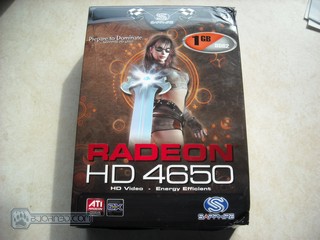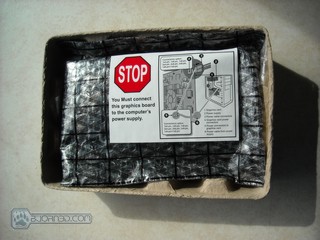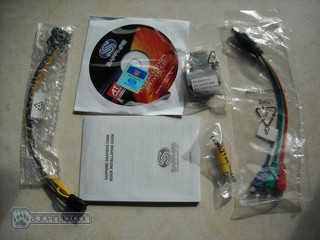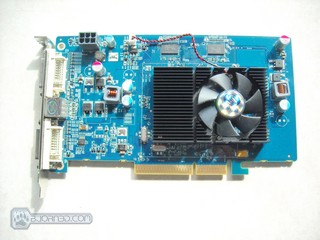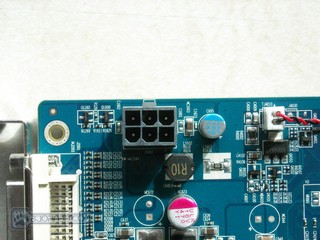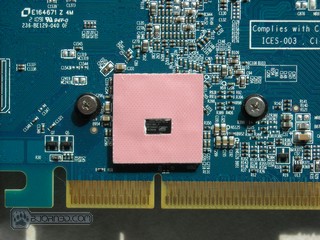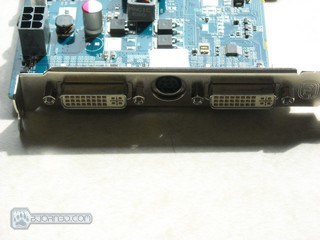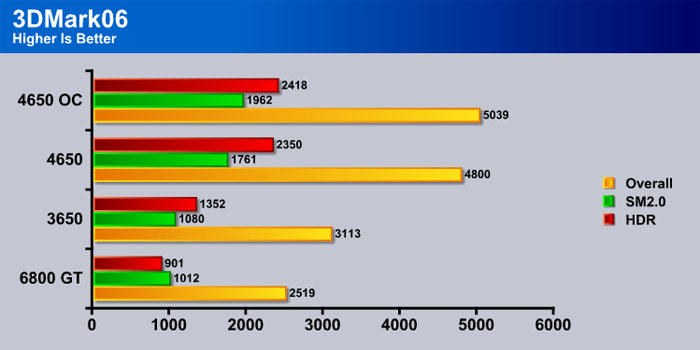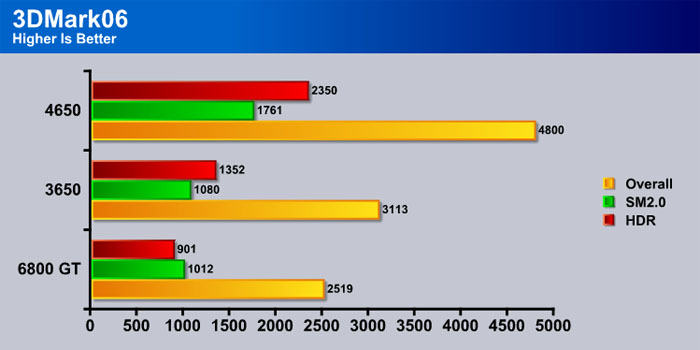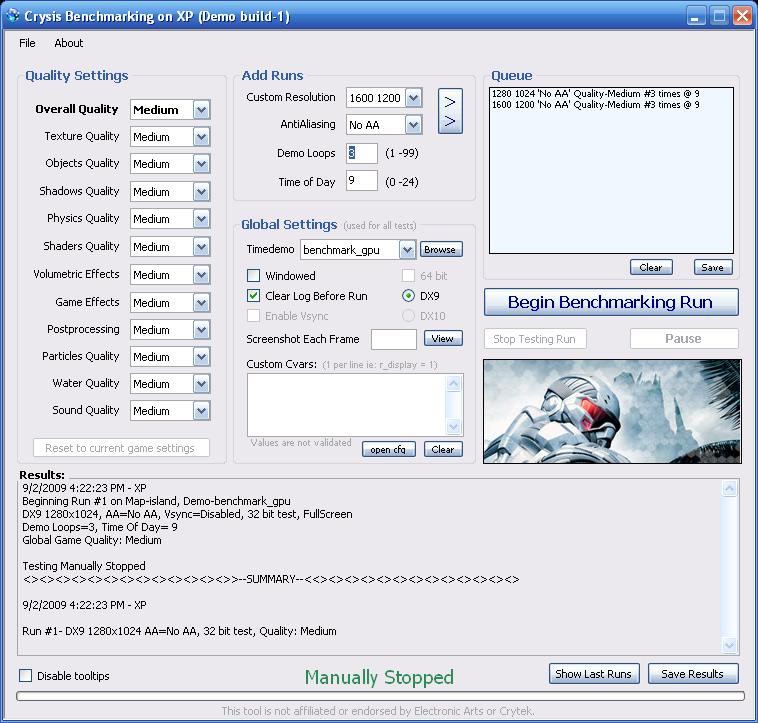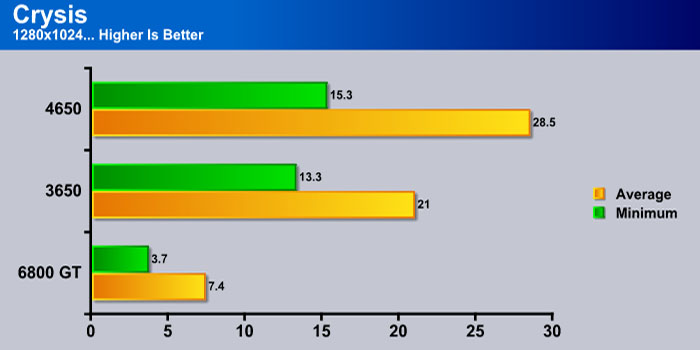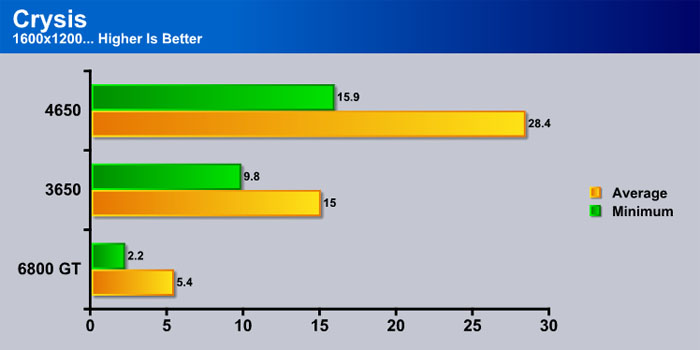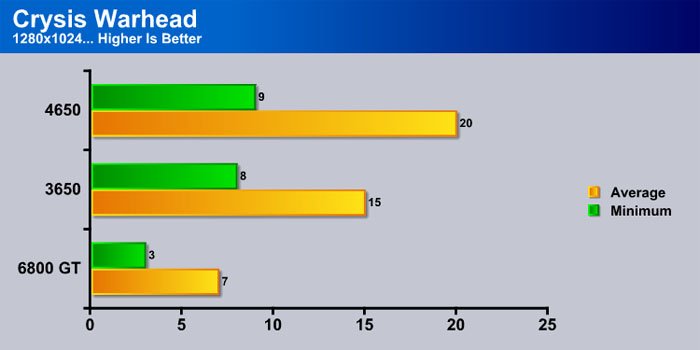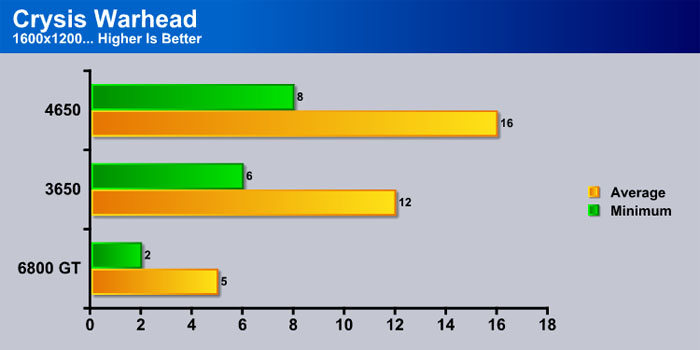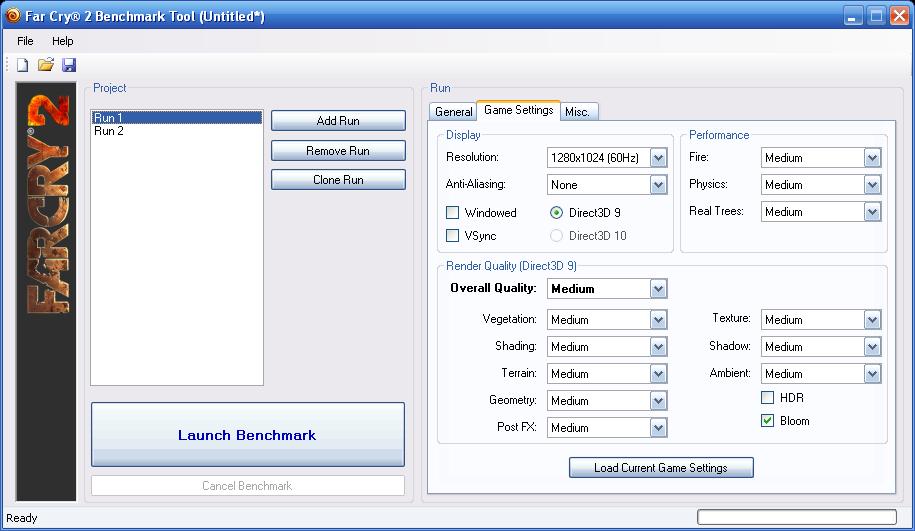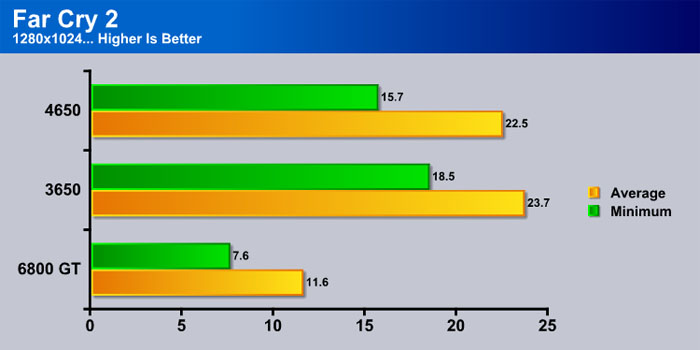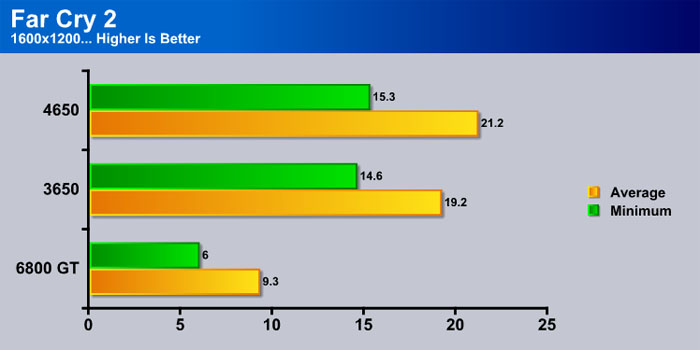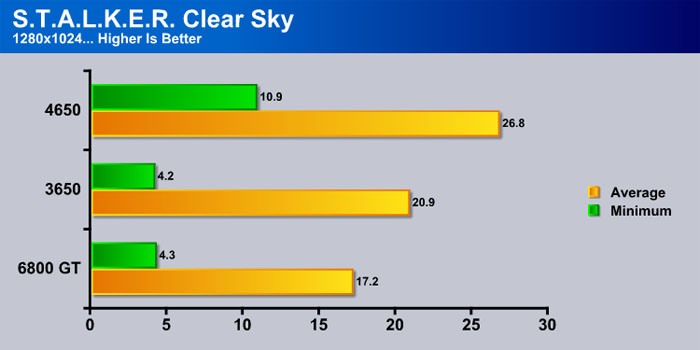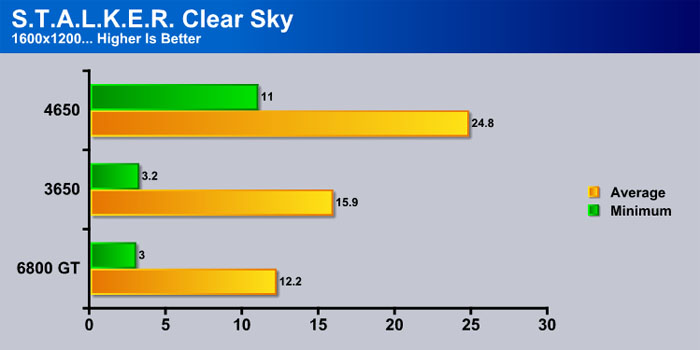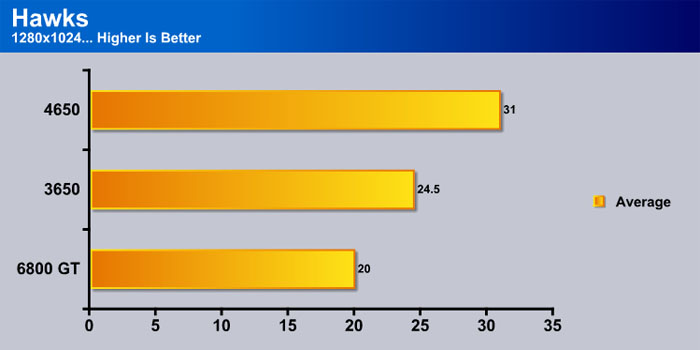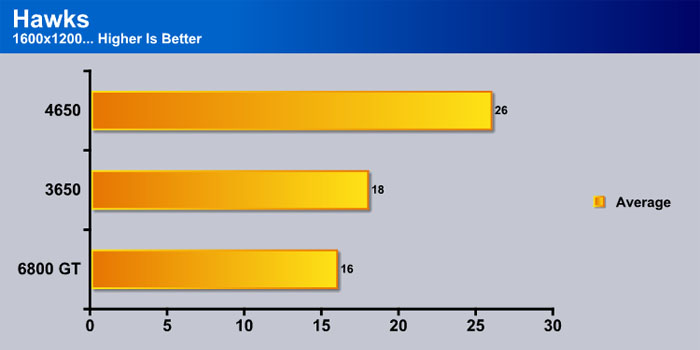Still trying to game one your old AGP machine? Well there may not be many of you left, but Sapphire sure hasn’t forgotten about you.
Introduction
Somehow though some twist of fate, AGP seems to just keep going. Despite the old standard being replaced by PCIE (currently being replaced by PCIE 2.0) there never seems to be a shortage of AGP cards. Up to this point there really hasn’t been an extremely good AGP card. The ATI X1950 and Nvidia 7950 GT are still considered the kings of the AGP bus. That is until the 3850 which took over the crown, but the 3850 consumes much more power than the 4650. While the 4650 is considered a mid range card it manages to outpower these old behemoths. If you still own either a 1950, 7950 GT, or a 3850 then there isn’t a whole lot of sense in upgradeing to this card since your better off buying a whole new system, but it may be an option for someone out there running on an older AGP card. At least this upgrade will give you more frames in game to make it playable.
While AGP can still be considered dead some of you will upgrade once again, and give manufacturers a reason to keep on makeing AGP cards. All of you AGP users please read on, and maybe consider an upgrade to PCIE already!

Features
Redefine HD Gaming
- 320 Stream Processing Units
Enough power to tackle the most demanding HD games and applications.
- Microsoft® DirectX®10.1
Play today while preparing for tomorrow with state-of-the-art DirectX 10.1 graphics capabilities.
- Enhanced Anti-Aliasing (AA) & Anisotropic Filtering (AF)
High performance anisotropic filtering and anti-aliasing (4X AA) smooth jagged edges and create true-to- life graphics, for everything from grass to facial features.
Go Beyond HD Video
- Unified Video Decoder 2 (UVD 2)
UVD 2 frees up your CPU for other tasks so you get The Ultimate Visual Experience™ for the most processing- intensive content. Take full advantage of Blu-ray functionality with dual-stream, picture in picture capabilities.
- Accelerated Video Transcoding(AVT)
Edit and transfer your videos to a portable video player with new Accelerated Video Transcoding (AVT) technology.
- Upscale Beyond 1080p
Watch the hottest Blu-ray movies or other HD content at full 1080p display resolution and beyond.
- Enhanced DVD Upscaling
Watch standard DVD movies in near high-definition quality with DVD upscaling. The GPU uses post processing algorithms to enhance standard and low resolution videos and movies on your HD display. - Dynamic Contrast
Dynamic Contrast automatically adjusts the contrast and brightness during scenes to consistently deliver a crisp, vibrant picture.
Break-through Efficiency
- Dynamic Power Management
ATI Radeon HD 4600 Series graphics cards feature ATI PowerPlay™ technology, delivering high performance when needed and conserving power when the demand on the graphics processor is low.1
- More Performance Per Watt
ATI Radeon HD 4600 series deliver up to 3x the performance per watt of AMD’s previous generation GPUs.
- Energy Efficient Manufacturing Process
Second generation 55nm chip uses the industry‟s most energy efficient manufacturing process.
Its nice to see the DX10.1 support on an AGP card, but I am sure many AGP users are running Athlon 64 or P4 rigs, so I dont know how smoothly Vista will run with that. This card has the same amount of shaders as the 3850 AGP, but is severly crippled by the lower memory interface. As mentioned here, the 4650 has much lower power usage than the 3800 series.
Specifications
| Specification | HD 4650 | HD 3850 | X1950 Pro |
|---|---|---|---|
| Interface |
AGP 4/8x |
AGP 4/8x | AGP 4/8x |
| Total Shaders |
320 | 320 | 44 |
| Core Clock (MHz) |
600 |
650 | 575 |
| Memory Clock (MHz) |
400 |
668 | 690 |
| Memory Type | GDDR2 | GDDR3 | GDDR3 |
Honestly if the 4650 was using GDDR3 instead of 2 the card would be a lot closer to the 3850. I am a bit disappointed that Sapphire didn’t put in GDDR3. According to the stats the 4650 should have no issue wiping the floor with the X1950, but so does the 2600 XT on paper. Lets take a look at what we get in the box.
Pictures & Impressions
Here we have the main box. A little roughed up, but not in too bad of shape. Sapphire chooses to put this card in the same exact card as their PCIE version of the card. They also clearly state it has 1 GB of RAM, and its 8x AGP interface.
Sapphire did a pretty good job packaging the card. The cardboard bin provides protection from being hit, and the anti-static bag keeps you from zapping your card before you get to play with it. The sticker on top also serves as a reminder to plug in the external power (something that will help users who aren’t used to this on their old cards).
The card does not come with a lot of accessories, but the ones included will certainly help you get started. First off there is a Molex to 6 pin PCIE power connector. Sapphire has also included a driver CD which is probably a good thing because ATI is not too keen on AGP support. There are also a couple adapters for VGA, HDMI, and component video.
Here is a beauty shot of the card. As you can see the heat sink is a bit small on this card. This was kind of a con for me, because I have a 3650 AGP that has a much larger heat sink. Lets hope Sapphire can keep the card cool with this little thing.
This was a big surprise for me. My 3650 used a floppy connector for external power, but this card uses the standard PCIE 6 pin connector. I really didn’t like the placement all that much, but at least they supply enough power to the card. The AGP does not supply as much power as the PCIE bus which is why the PCIE version doesn’t have any external power.
Once I turned the card over I was terrified to see this. No heat sink what so ever… I don’t know what was going through the Sapphire engineers, but this chip really needs a heat sink. I would suggest rigging something together otherwise the card will probably not last as long as it should.
This was a bit of a surprise to me, dual DVI. I think Sapphire would have been better off with one DVI port and VGA port, but at least they included a DVI to VGA adapter. The middle plug in is so you can either use component video, or standard video though one cable.
Metholdology
To test this card, we did a fresh load of XP bit and applied all the patches and updates for the OS, then we updated all the motherboard drivers and made sure that we had the latest 9.8 Catalyst and 190.62 Forceware drivers. We didn’t install any video drivers on the test rig at first, we just installed the basics and then cloned the hard drive using Acronis. That way when we switch from the ATI GPU to the Nvidia GPU we can have a fresh load with no old drivers hanging around to bugger up our benchmark numbers.
We ran each test 3 times and averaged the results, the average of those results are reported here. The one exception to the 3 run rule is Stalker, this test is just so long so it was run once, and each of the test results where averaged together. Below is a detailed list of the components used during testing.
| Test Rig | |
| Case Type | Cooler Master Scout |
| CPU | Intel Pentium D 820 @ 2.9 GHz |
| Motherboard | AsRock 4 Core Dual – SATA 2 |
| Ram | (2x1GB) OCZ Platnium @ 410 2-3-2-5 |
| CPU Cooler | Intel Q6600 Stock |
| Hard Drives | Western Digital 40 GB Maxtor 120 GB |
| Optical | LiteOn DVD-R |
| GPU’s Tested |
PNY 6800 GT |
| Testing PSU | Corsair TX650 |
Synthetic Benchmarks & Games
| Synthetic Benchmarks & Games | |
| 3DMark 06 | |
| Stalker Clear Sky Stand Alone Benchmark | |
| Crysis | |
| Crysis Warhead | |
| Hawks | |
| Far Cry 2 | |
Overclocking
To overclock the Sapphire 4650 I used the ATI Catalyst built in overclocker. I slowly increased the clocks by 10 MHz until the system became unstable, then I backed down the clocks a bit and tested for stability. I kept lowering the clocks until the system was rock solid.
I actually was able to put up some serious clocks, coming up with final clocks of 712MHz core, and 538MHz memory. Below is a run though 3D Mark 06 to give you an idea on how much the score was improved.
The card doesn’t get a huge gain, but a sizeable one. This can add a few frames to a game, and make it a bit more playable.
3DMARK06 V. 1.1.0
3DMark06 developed by Futuremark, is a synthetic benchmark used for universal testing of all graphics solutions. 3DMark06 features HDR rendering, complex HDR post processing, dynamic soft shadows for all objects, water shader with HDR refraction, HDR reflection, depth fog and Gerstner wave functions, realistic sky model with cloud blending, and approximately 5.4 million triangles and 8.8 million vertices; to name just a few. The measurement unit “3DMark” is intended to give a normalized mean for comparing different GPU/VPUs. It has been accepted as both a standard and a mandatory benchmark throughout the gaming world for measuring performance.
The 4650 gets out in front early. Not by just a small margin, but by a pretty large one of almost 2k points. Judging by the results so far the 4650 should be able to wipe the floor with the 3650.
Crysis v. 1.21
Crysis is the most highly anticipated game to hit the market in the last several years. Crysis is based on the CryENGINE™ 2 developed by Crytek. The CryENGINE™ 2 offers real time editing, bump mapping, dynamic lights, network system, integrated physics system, shaders, shadows, and a dynamic music system, just to name a few of the state-of-the-art features that are incorporated into Crysis. As one might expect with this number of features, the game is extremely demanding of system resources, especially the GPU. We expect Crysis to be a primary gaming benchmark for many years to come.
The Settings we use for benchmarking Crysis
As with 3D Mark the 4650 really flexes its muscle, and blows past the 3650. The 3650 was almost able to match the minimum frame rate of the 4650, but still fell short.
Once again the 4650 shows its dominance over the other two cards. You can actually clearly see that the card is bottle necked by the CPU, because the scores are almost the exact same.
CRYSIS WARHEAD
Crysis Warhead is the much anticipated sequel of Crysis, featuring an updated CryENGINE™ 2 with better optimization. It was one of the most anticipated titles of 2008.
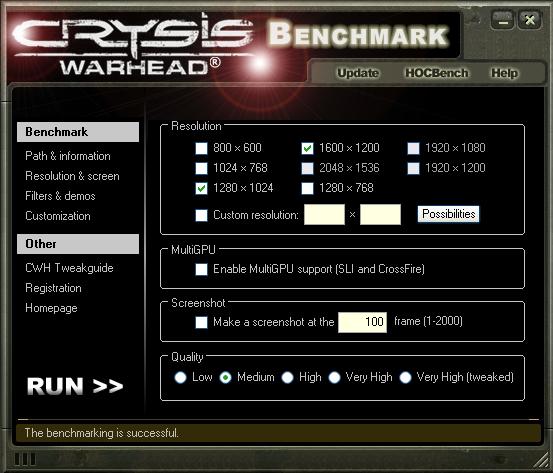
When we move into Warhead we actually see lower performance. For some reason AGP cards seems to not like Warhead despite it being more optimised.
Again the cards do worse than in Crysis. The one good thing worth noting though is Warhead does not seem to have the CPU bottleneck that the original Crysis had.
Far Cry 2
Far Cry 2, released in October 2008 by Ubisoft, was one of the most anticipated titles of the year. It’s an engaging state-of-the-art First Person Shooter set in an un-named African country. Caught between two rival factions, you’re sent to take out “The Jackal”. Far Cry2 ships with a full featured benchmark utility and it is one of the most well designed, well thought out game benchmarks we’ve ever seen. One big difference between this benchmark and others is that it leaves the game’s AI (Artificial Intelligence) running while the benchmark is being performed.
The Settings we use for benchmarking FarCry 2
A little bit of a surprize here, the 3650 actualy wins. This is most deffinatily an odd result. Lets see if the 3650 can do the same when we increase the resolution.
The 4650 takes back its crown after a upset to the 3650. The 3650 is still able to stay within strikeing distance of the 4650, so maybe its just the way Far Cry 2 is coded.
S.T.A.L.K.E.R. Clear Sky
S.T.A.L.K.E.R. Clear Sky is the latest game from the Ukrainian developer, GSC Game World. The game is a prologue to the award winning S.T.A.L.K.E.R. Shadow of Chernoble, and expands on the idea of a thinking man’s shooter. There are many ways you can accomplish your mission, but each requires a meticulous plan, and some thinking on your feet if that plan makes a turn for the worst. S.T.A.L.K.E.R. is a game that will challenge you with intelligent AI, and reward you for beating those challenges. Recently GSC Game World has made an automatic tester for the game, making it easier than ever to obtain an accurate benchmark of Clear Skie’s performance.
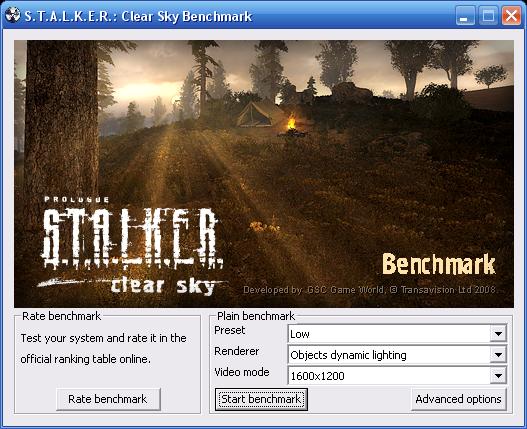
When we move to Stalker we see that the 4650 again takes a massive lead over the other two cards. As I said before, the Far Cry mishap must have happened due to something in the code.
No surprizes here as the 4650 whips past the competition once again. Can the 4650 repeat this feat for one last test?
HawX
The story begins in the year 2012. As the era of the nation–state draws quickly to a close, the rules of warfare evolve even more rapidly. More and more nations become increasingly dependent on private military companies (PMCs), elite mercenaries with a lax view of the law. The Reykjavik Accords further legitimize their existence by authorizing their right to serve in every aspect of military operations. While the benefits of such PMCs are apparent, growing concerns surrounding giving them too much power begin to mount.
Tom Clancy‘s HAWX is the first air combat game set in the world–renowned Tom Clancy‘s video game universe. Cutting–edge technology, devastating firepower, and intense dogfights bestow this new title a deserving place in the prestigious Tom Clancy franchise. Soon, flying at Mach 3 becomes a right, not a privilege.
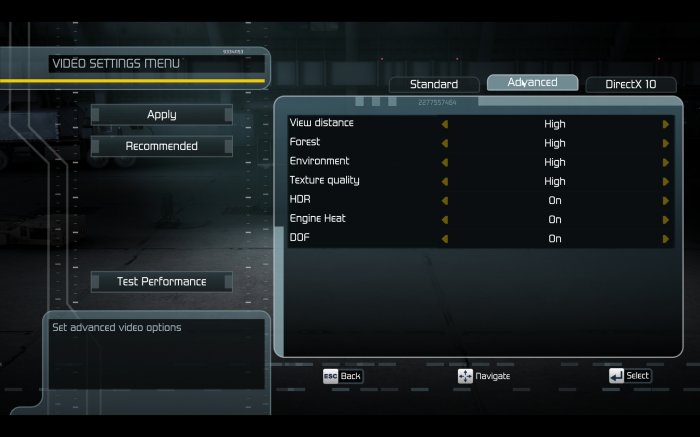
Again the 4650 takes the lead. I think it can finaly be said that the 4650 clearly has more power than the 3650.
The 4650 further pulls ahead, and with that we see that the 4650 was only topped once. Lets get on to the conclusion.
temperatures
The Sapphire 4650 certainly looked like it was going to run hot, but in the end it ran cooler than expected. I let the fan run at auto speed, which usually gives the sweet spot between noise and performance. Throughout testing the fan was very hard to hear over my case fans. To test the load temperature I loaded up Furmark 1.7, and let it run for 30 minutes. I then recorded the maximum temperature reached. To test the idle temperature I let the card sit with no programs running. Below is a table of the results.
| Idle Temperature | Load Temperature |
|---|---|
| 52 | 79 |
These are acceptable temperatures, but right on the borderline. If you up the fan speed the temperatures drop dramaticaly. The fan is not too loud, so you can set the fan up there and not hear it.
Conclusion
Despite the fact that an AGP slot has not been on motherboards in a long time we seem to still see these cards being made. As stated before, if you currently have a X1950 or higher then there is not really any reason to move to this chip. However if you are running on an older AGP chip, and find that your old graphics card just isnt playing games anymore will probably find the jump useful. Of course the ultimate solution would be to totaly get rid of AGP all together, but we understand that your waiting for the perfect moment… still.
Focusing more on the card itself we see that it is clearly one of the most powerful AGP cards to date, though the 3850 takes the cake due to its memory bus and type. None the less, the 4650 still manages to plow through the latest games at playable levels. The card also has superior efficency due to the die shrink to 55 nm. All in all the 4650 AGP is a great performing card with excellent efficency which can breath some new life into that old AGP rig.
We are using this scale with our scoring system to provide additional feedback beyond a flat score. Please note that the final score isn’t an aggregate average of the rating system.
- Performance 8
- Value 7
- Quality 7
- Warranty 8
- Features 8
- Innovation 7
Pros:
+ Great Performance
+ Overclocks Well
+ 1 GB Of Memory
Cons:
– Bad Cooler
– No Heat Sink On PCIE To AGP Chip
The Sapphire 4650 is a very powerful AGP card that has no issue whipping the older 3650, and will make that old AGP rig last just a little longer. This is why the card received a 7 out of 10, and the Bjorn3D Seal of Approval.
 Bjorn3D.com Bjorn3d.com – Satisfying Your Daily Tech Cravings Since 1996
Bjorn3D.com Bjorn3d.com – Satisfying Your Daily Tech Cravings Since 1996
